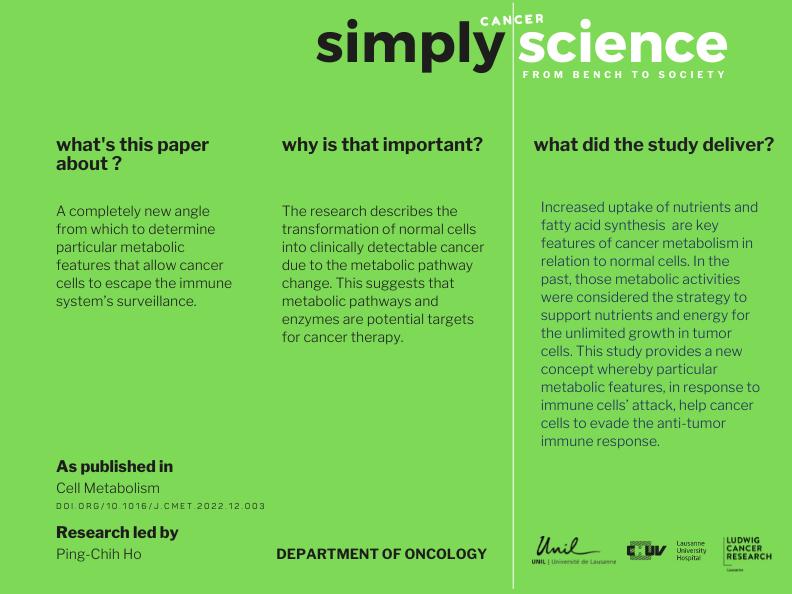Immunoediting instructs tumor metabolic reprogramming to support immune evasion
Researchers in the Ho Lab uncover that immunoediting instructs deregulated bioenergetic programs via IFNg-MYC signaling in tumor cells empowering them to disarm the T cell-mediated immunosurveillance and generating the suppressive tumor microenvironment.

Immunoediting sculpts immunogenicity and thwarts host anti-tumor responses in tumor cells during tumorigenesis; however, it remains unknown whether metabolic programming of tumor cells can be guided by immunosurveillance.
In a paper* published in Cell Metabolism, researchers led by Pr Ping-Chih Ho have found that T cell-mediated immunosurveillance in early staged tumorigenesis instructs c-Myc upregulation and metabolic reprogramming in tumor cells. This previously unexplored tumor-immune interaction is controlled by a non-canonical IFNγ-STAT3 signaling and supports tumor immune evasion.
This research describes a new dimension of tumor-immune interaction by which IFNγ produced by T cells instructs metabolic reprogramming in tumor cells for supporting tumor immune evasion. Of note, other immune cells such as NK cells also secrete IFNγ and participate in immunosurveillance. Thus, it is possible that immunosurveillance elicited by other immune cells can also tailor metabolic preference of tumor cells depending on which immune cell types are the major providers of immune pressure in the tumor microenvironment. Moreover, the researchers also envisage that this tumor-immune interaction guides metabolic reprogramming in tumor cells can be influenced by the metabolic nature in the tissue context. Further research into these questions would provide important information to elucidate the evolvement of the tumor microenvironment and development of metabolic targeting approaches that could unleash host anti-tumor immunity by alleviating metabolic stress imposed by tumors.
Work on this project was supported by the Swiss National Science Foundation (SNSF), the Ludwig Institute for Cancer Research, the European Research Council and the Cancer Research Institute.
*Immunoediting instructs tumor metabolic reprogramming to support immune evasion
